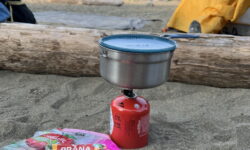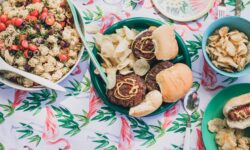What is a snackle box? A snackle box is the ultimate snack box, created in…
Ever wondered what Olympians eat to stay in elite shape and health? We’ve all heard of Penny Oleksiak by now, the youngest Canadian to become an Olympic champion who has won four medals in the this year’s Rio Olympics. And she’s only sixteen years of age. Some of us can only dream, but if you’re shaping up for a competition, a race, or even the Olympics, perhaps you could benefit from the help of an Olympian diet.
Ancient Olympians’ diets looked very different.
In Ancient Greece, the common diet consisted mostly of bread, vegetables, fruits, fish, and olive oil; this diet has since been labelled the Mediterranean Diet. Although the Mediterranean Diet purely derives from geographical dietary traditions and not health guidelines, some people today still prefer it due to its health benefits. Studies have found that other places in this region, including Spain and Southern Italy, have the lowest rates of heart disease.
The Olympian diet took many twists and turns throughout its history, anywhere from a high-protein legume-based diet to a meat-only diet, and in some years, even honey by itself became a food fad.
What does the modern-day Olympian diet look like?
Flash forward to the 2008 Beijing Olympics when Michael Phelps won way too many gold medals. It was reported that he was inhaling 12000 calories every day; for reference, the average male’s daily intake is around 2400 calories. But it seems like athletes have cleaned up—like, a lot—in eight years, with most elite athletes consuming green smoothies, yogurt, oatmeal, and salads.
An article published by major sports news outlet, SB Nation, reported five Olympians’ diets, all of which are (unsurprisingly) extremely nutritious and clean. Eggs, berries, nuts, and vegetables all seem to be the overarching basis for the modern-day Olympian. Various juices, grains, and lean meats like chicken and turkey are also essential for many athletes.
The most vital focus based on these athletes’ diet schedule is to have a balanced, nutritious, and clean diet without being too full. We’ve mixed and matched the most nutritious foods from each athlete’s diet to compile a diet to supplement your road to the podium.
Eat your way to Olympic podium.
8:00 AM: two eggs, oatmeal, and yogurt
10:30 AM: an apple
12:00 PM: whole-wheat tortilla wrap with spinach, carrots, cheese, chicken breast, and pesto
3:00 PM: green smoothie: kale, celery, parsley, pineapple, and lime juice
6:00 PM: salmon with potatoes and asparagus
The eating habits of these Olympians didn’t seem to be restricted to certain food groups, but rather what is most healthy and suitable for your own body, so if you’re really gunning for a medal, it’ll be absolutely critical to find out what your body needs the most.



